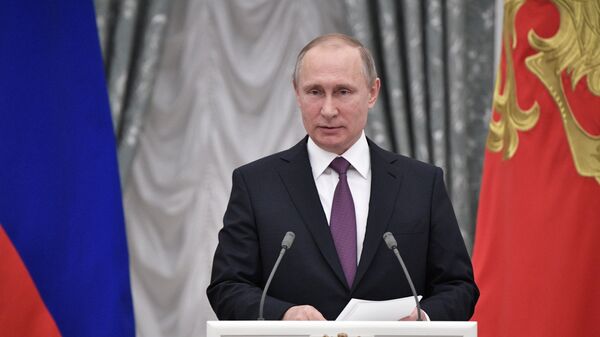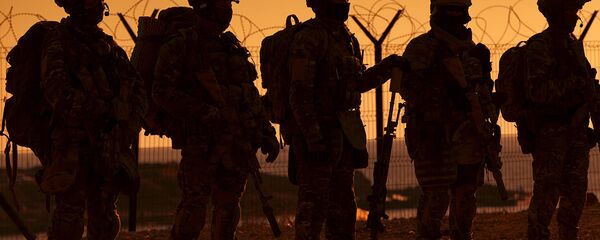According to media reports, 16 Russian Spetsnaz officers entered the frontline in the province of Aleppo to transfer the coordinates of targets for airstikes. They were attacked by militants. Terrorists used Grad systems, artillery, mortars and a tank to attack the Russian military.
The Russian fighters decided to take the fight and for two days they had repelled 300 terrorists' attacks. They managed to destroy the enemy tank, two infantry fighting vehicles and an explosive-packed car with a suicide bomber. The militants retreated, Russian military avoided losses.
"The head of the state personally awarded Russian Spetsnaz fighters who accomplied a feat in the Syrian province of Aleppo on Wednesday just as he had promised," Peskov said.
The spokesman recalled that Russian Special Forces have been repelling attacks by numerous groups of terrorists for two days on the frontline.
He said that "the Syrian troops in this area retreated leaving our military on the frontline because of lack of coordination of actions."
The commander of the group who was named a Hero of the Russian Federation said earlier that they were part of a 16-strong Russian military unit which managed to successfully repel attacks by 300 jihadists. He specified that the Russian Spetsnaz soldiers had been attacked by al-Nusra Front militants, adding that they possess enough military equipment and have some foreign-made medications.
"We avoided casualties due to good shelter and location. Besides, we had a good advantage in terms of armament and equipment, including thermal imaging sights. All this added to our success," he said.
Russian One TV-channel broadcast the Defense Ministry's report about awards for the Special Forces' officers. When Putin learned about what they had done, he wrote on a document: "I agree, will award them personally."
Earlier, Russian security expert Igor Nikolaychuk told Sputnik that the terrorists were defeated also thanks to tactics employed in the preparation and use of Russian Special Forces' groups.
"First and foremost, I would single out the strategies which have been in place since the Afghan war, when the problem of anti-terrorist activity was being resolved with the help of small-size, mobile and well-trained groups," Nikolaychuk said, referring to the legendary Alfa anti-terrorist group.



